Portland couple Zach Both and Nicole Lopez have recently finished building their very own impressive yurt home with an interior loft garden. What's more the couple have released all their plans online, along with a step-by-step DIY guide online.
Dubbed Do It Yurtself, the project seems a good fit for tiny house enthusiasts who are looking to make a home away from built-up urban areas, without sacrificing on too much space. Often the limitations of tiny living can be too restrictive, especially if you're looking at building a home for more than two occupants. Not only is this yurt a sustainable and economical option but the interior floor plan and furnishings have definitely captured our attention.
“It’s been incredible to adapt a structure with a history that stretches back thousands of years,” said Zach Both. “It was our attempt at building a modern yurt for the 21st century."
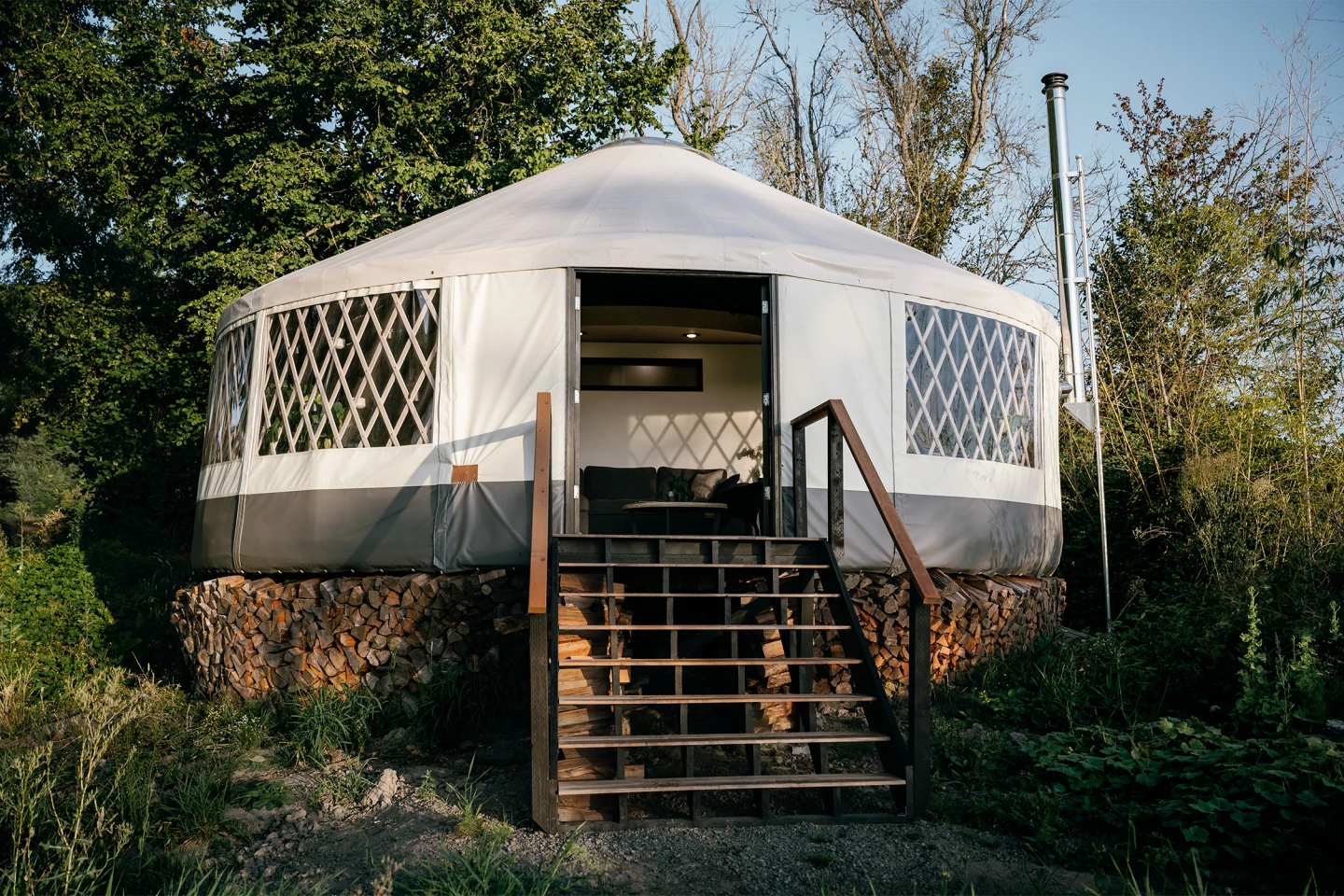
Located approximately 20 minutes outside of Portland, Oregon, the gorgeous botanical yurt home took the couple close to six months to complete. However, the exterior structure only took them (with the help of family and friends) a weekend to install.
Utilizing a traditional yurt structure bought from a yurt store, the home measures just over 30 ft (9.14 m) in diameter and boasts an impressive 730 sq ft (67.8 sq m) of interior living space. SIP panels were chosen to complete the home's base platform, along with a pressure treated lumber subframe and footings. The exterior features a waterproof vinyl cover, which prevents any leaks during rainy weather and even in heavy storms. According to Both the home also boasts a decent rooftop snow load of approximately 100 per square foot.
“[I] forgot what the wind resistance is, but we've had some crazy windy storms and the yurt shakes ever so slightly on some big wind gusts,” says Both.
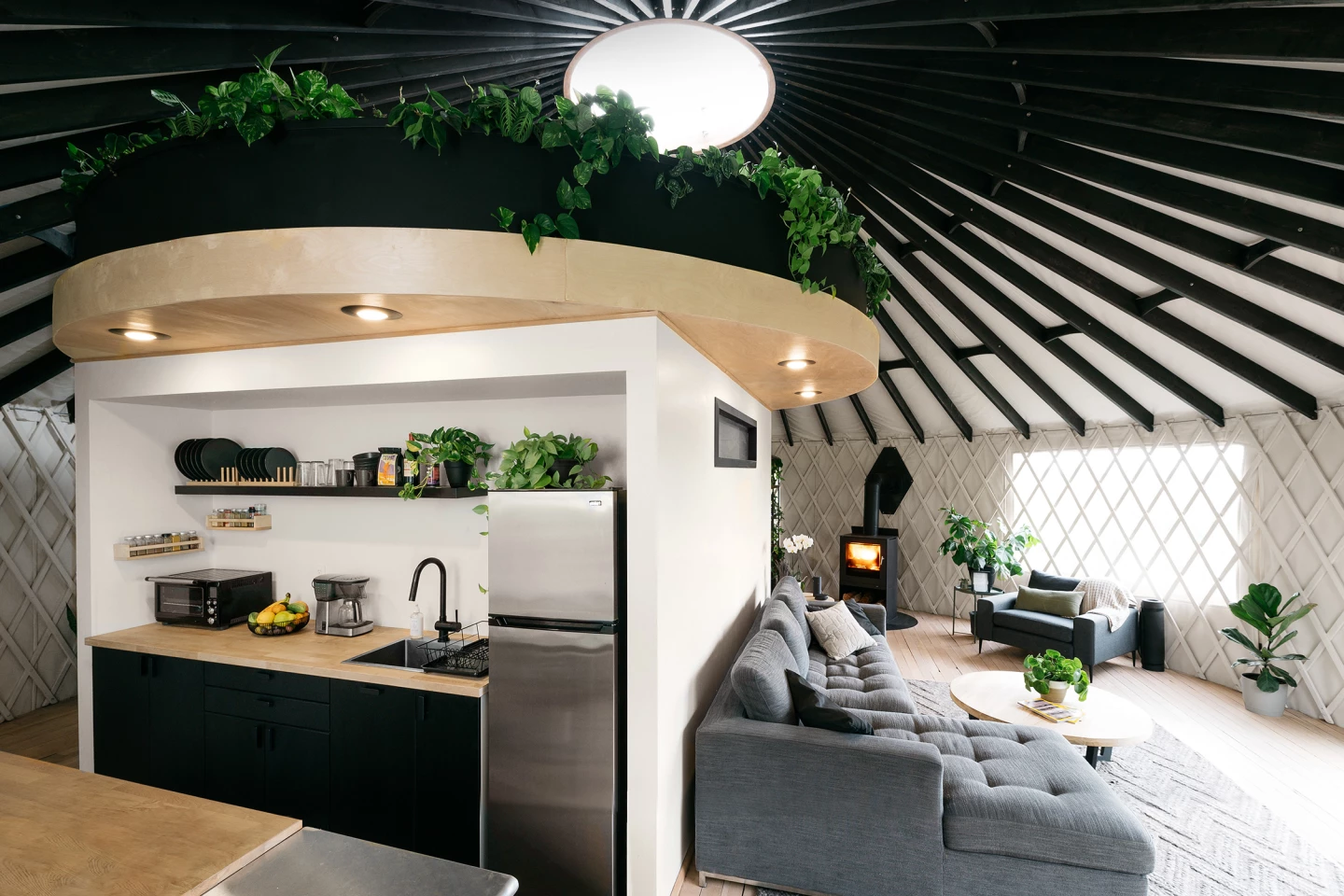
The interior has been personally adapted by the couple to include a central core unit that houses the home's modern kitchen, hidden private bathroom, home office, and elevated double loft bedroom with circular garden. Other features of the home include wooden floorboards, open lounge area, quiet reading corner, woodfire heater, double opening glass doors, small exterior timber decking and entry steps, and over 45 plants in the perimeter of the circular loft bedroom.
“We previously lived in the desert which made growing any kind of big green plants virtually impossible. So we went all out in the yurt,” says Both. “Lots of the basic vining plants that are difficult to kill: different varieties of pothos, philodendrons, a few prayer plants and curly figs. Downstairs we've got monsterras, figs, ferns, and a wall of succulents in some DIY hanging planters made from PVC pipe caps.”
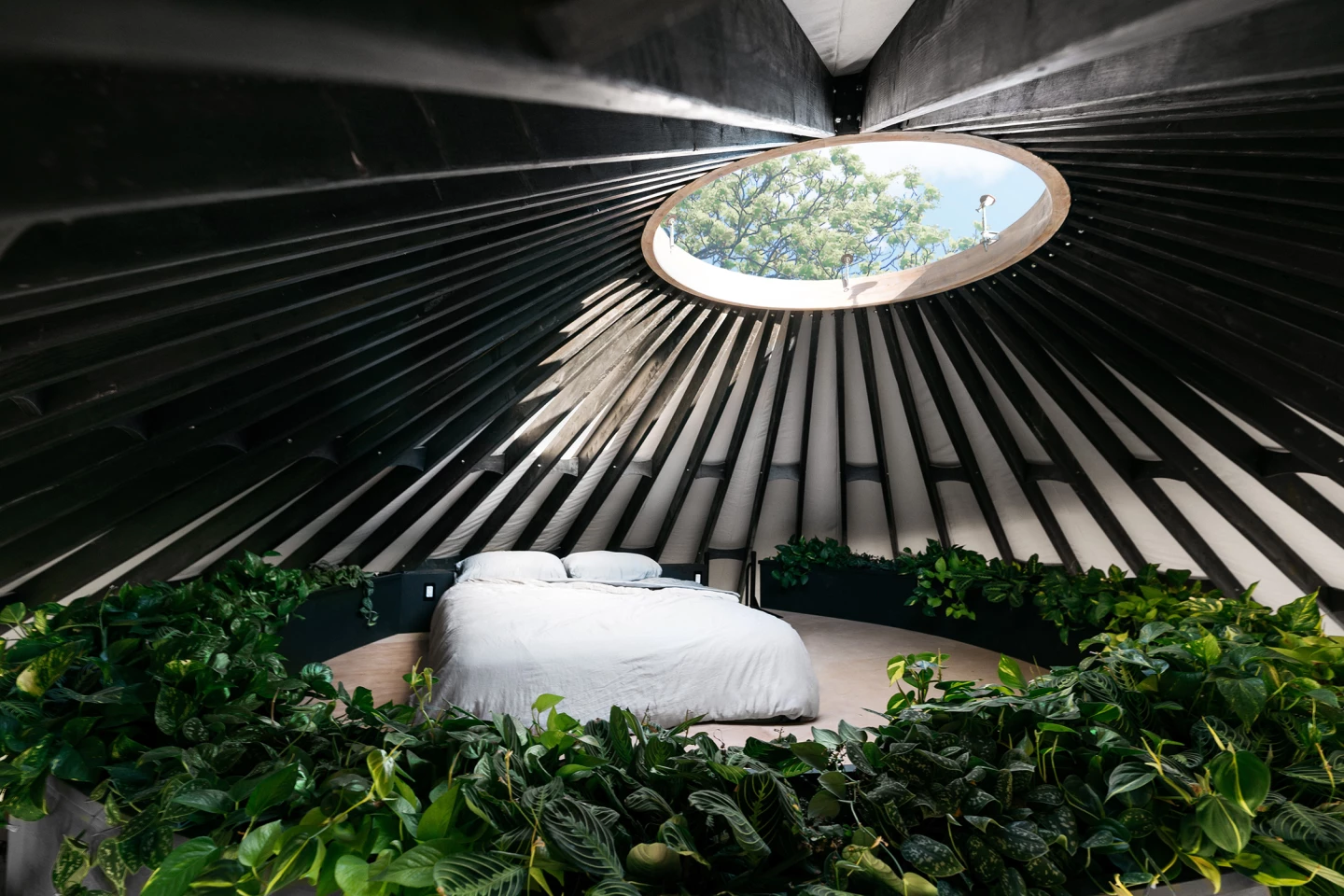
The loft bedroom hosts plenty of room for a large double bed and features a striking circular skylight. Although the skylight is not ideal for sleeping in, it does filter light throughout the entire home.
The hidden bathroom is located within the central core unit and features a large modern shower, mosaic tile flooring, large basin with underneath storage, compost toilet and full length sliding mirrors with hidden wardrobe space. Unfortunately the home does not have any laundry facilities, so the couple have to drive to the local laundromat for their washing needs.
“We were also really intrigued by trying to use a compost toilet and have found it quite enjoyable (not to mention septic adds a lot more cost and complexity),” says Both. “Because our solid waste is now separate and composted outside of the yurt in a compost container, we only have grey water which is mixed with the rest of the grey water from shower and sinks that feeds into a dry well. Only downside of this is you can only use plant-based, biodegradable soaps and cleaners because its going straight into the ground.”
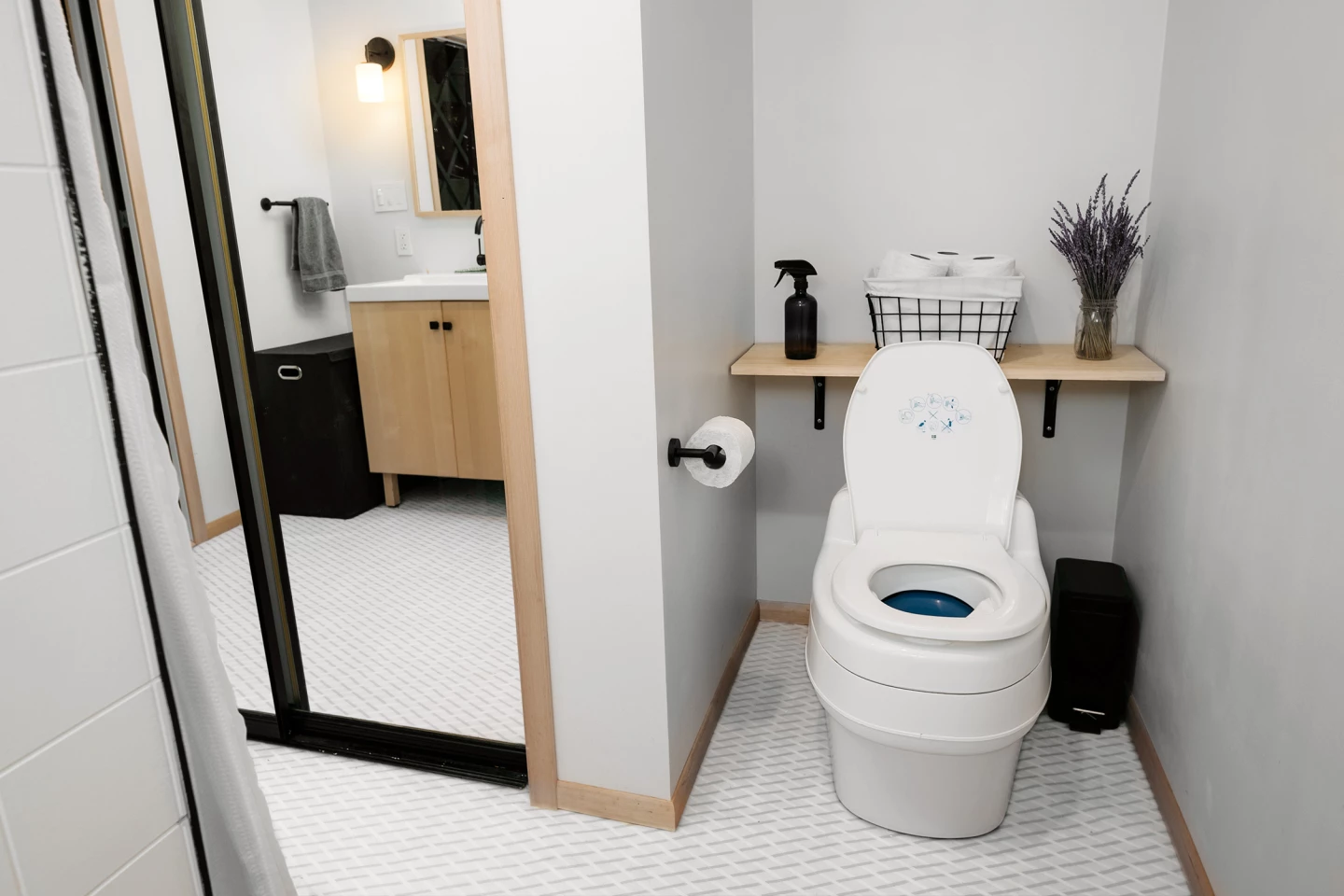
The total project cost approximately US$65,000 to complete, broken down as follows:
- 30-inch yurt kit with extras – $32,000
- SIP platform, PT subframe, footings – $10,000-12,000
- Interior build materials (lumber, flooring, drywall, lots of plywood) – $8,000
- Appliances (fridge, compost toilet, water heater, wood stove, chimney) – $7,000
- Furniture, cabinets and decor – $8,000
“$65,000 plus is not a small chunk of change by any means and was far outside of my budget as a 25-year-old, so a lot of the cost was offset by bartering and corporate partnerships,” says Both. “You could build a smaller, super bare-bones yurt for under $10,000 if you buy the yurt used.”
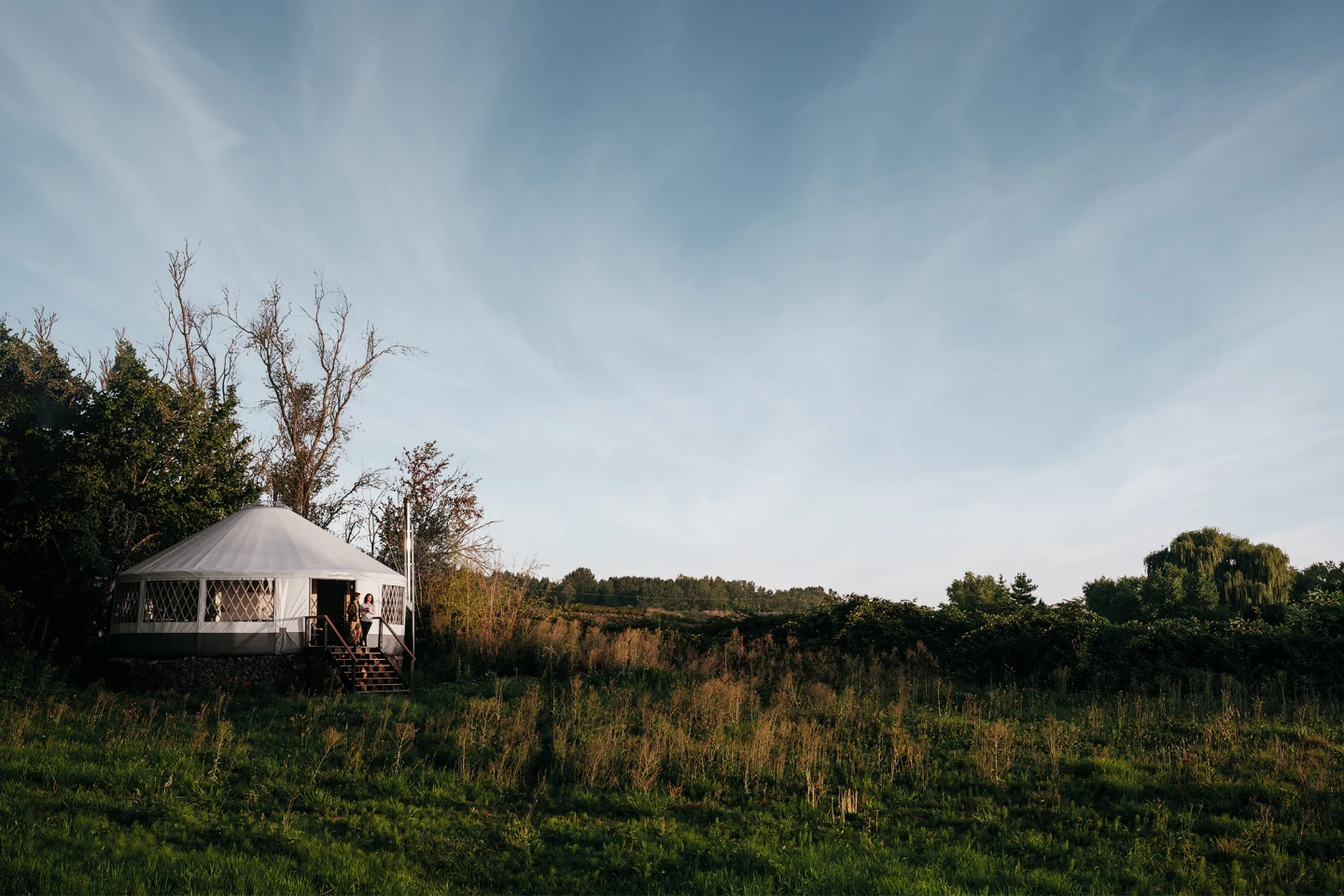
With the intention of sharing their knowledge and hard work, the couple have created a website, with an indepth look at how the yurt was built and what they learned along the way. The free guide incorporates photos and videos of the entire build process.
Source: Do It Yurtself via Reddit




































